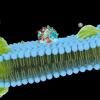
#301
Posted 20 October 2011 - 10:33 PM
I realize this should be obvious information, given all the specifics gone over thus far on MB actions. Are there any other reasons that these clinical dosages couldn't be considered a safe maximum? Specifics on oral ranges would be great, obviously; some are alluded to on drugs.com
"Methemoglobinemia can be treated with supplemental oxygen and methylene blue[4] 1% solution (10 mg/ml) 1 to 2 mg/kg administered intravenously slowly over five minutes followed by IV flush with normal saline. Methylene blue restores the iron in hemoglobin to its normal (reduced) oxygen-carrying state."
"Its [MB] summary effect on red blood
cells is to reduce the heme from methemoglobin to
hemoglobin. Paradoxically, at higher doses, this equilib-
rium is destroyed and an excess of methemoglobin is
produced (Curry, ’82). The formation of hydrogen perox-
ide as a by-product can lead to oxidation of the red-cell
membranes, denaturation of hemoglobin, hemolytic
anemia, and Heinz body formation (Kirsch and Cohen,
’80; Salaris et al., ’91)."
#302
Posted 21 October 2011 - 04:43 AM
Thanks for the paper, rwac. Everyone who's interested in the iNOS inhibition of MB ought to give this a hard look. iNOS products were 50% reduced at the 5 uM dose, so we could consider that the EC50 of MB for iNOS. The 15 uM dose was identical to the 30 uM result, so that's effectively 100% inhibition. 10 uM should get you 80 to 100%. Here's the problem: These are really high concentrations. We've been shooting for 100 nM, but 10 uM is 100 times as high. Based on pharmacokinetics referenced below, that would take something like 330 mg intravenous, or roughly 3.3 grams orally. At these doses, you would be completely flattening MAO. I think that iNOS inhibition is a non-starter. It's going to take too much drug, and at the doses we've been using, you just aren't going to see any significant inhibition.You can download it here: http://informahealth...164700317362299
The study is talking about concentrations of 5-30 microM in vitro.
In this paper, Gillman makes a reference to some human PK data:
0.75mg/kg * 70kg human = 52.5 mg intravenous. This is the peak level (Cmax), which is transient. A ballpark estimate for a level that would persist for a while might be 800 nM. This suggests that we should be using something like 52.5/8 = 6.6mg iv, or 66 mg oral? Clearly something is amiss here. Someone posted a paper a while back about variable partitioning of MB into different body compartments. Maybe a lot more ends up in the brain? In the mitochondria? Another possibility is that taking it in solution is much more efficient than in a pill, and the comparison to iv dosing is a lot less than a factor of 10. Another possibility is that everything we've experienced under our microgram dosage regime was placebo effect. In the Mouse Grip Strength thread, I calculated a human dose of 35mg per day. This is another estimate for dosage that's a lot higher than we've been using. To bring this back around to iNOS, if these dosing estimates are right, then the likelihood of inhibiting iNOS with the doses that we're using is very low. If they aren't right, then we'll still need a hundred times as much as we're taking now, assuming that the dose we're using now is getting us a sustained 100 nM. I don't remember where the purported 60 ug "nootropic dose" came from, but there's no way that it's hitting 100 nM in blood. Assuming a 5 liter blood volume, that would take 160 ug intravenously, and at that, you'd only be hitting 100 nM for a moment.J Psychopharmacol. 2011 Mar;25(3):429-36. Epub 2010 Feb 8.
CNS toxicity involving methylene blue: the exemplar for understanding and predicting drug interactions that precipitate serotonin toxicity.
Gillman PK.
PsychoTropical Research, Bucasia, Queensland, Australia. kg@matilda.net.au
Methylene blue has only recently been noted to cause severe central nervous system toxicity. Methylene blue is used for various conditions, including, intravenously, in methemoglobinemia, vasoplegia and as an aid to parathyroidectomy (at doses of 1-7.5 mg kg(-1)). This review of the current evidence concludes that 13 of 14 of the reported cases of CNS toxicity were serotonin toxicity that met the Hunter Serotonin Toxicity Criteria. That has important preventative and treatment implications. Serotonin toxicity is precipitated by the monoamine oxidase inhibitor (MAOI) property of methylene blue interacting with serotonin reuptake inhibitors. Serotonin toxicity is reviewed, using the lessons inherent in the methylene blue story and experience, to illustrate how the mechanisms and potency of serotonergic drugs interact to determine severity. Recent human data showed that an intravenous dose of only 0.75 mg kg(-1) of methylene blue produced a peak plasma concentration of 500 ng ml(-1) (1.6 µM), indicating that the concentration in the central nervous system reaches a level that inhibits monoamine oxidase A. That is consonant with the actual occurrence of severe serotonin toxicity in humans at the dose of only 1 mg kg(-1). It seems that all proposed uses of methylene blue entail levels that block monoamine oxidase, so cessation of serotonin reuptake inhibitors should be very carefully considered before using methylene blue.
PMID: 20142303
#303
Posted 25 October 2011 - 09:09 AM
Methylene Blue Experiences
Methylene Blue Dosing and Products
Methylene Blue Research
Methylene Blue and MAO Inhibition
These topics are interrelated, but we should try our best to keep discussions as topically segregated as realistically possible, to make the information easier to find in the future.
#304
Posted 10 November 2011 - 01:10 PM
PMID: 21333710Oleuropein and derivatives from olives as Tau aggregation inhibitors.
Tau isoforms constitute a family of microtubule-associated proteins that are mainly expressed in neurons of the central nervous system. They promote the assembly of tubulin monomers into microtubules and modulate their stability, thus playing a key structural role in the distal portion of axons. In Alzheimer's disease and related tauopathies, Tau aggregation into fibrillary tangles contributes to intraneuronal and glial lesions. We report herein the ability of three natural phenolic derivatives obtained from olives and derived food products to prevent such Tau fibrillization in vitro, namely hydroxytyrosol, oleuropein, and oleuropein aglycone. The latter was found to be more active than the reference Tau aggregation inhibitor methylene blue on both wild-type and P301L Tau proteins, inhibiting fibrillization at low micromolar concentrations. These findings might provide further experimental support for the beneficial nutritional properties of olives and olive oil as well as a chemical scaffold for the development of new drugs aiming at neurodegenerative tauopathies.
#305
Posted 10 November 2011 - 07:45 PM
Prog Neurobiol. 2011 Nov 3. [Epub ahead of print]
Neurometabolic mechanisms for memory enhancement and neuroprotection of methylene blue.
Rojas JC, Bruchey AK, Gonzalez-Lima F.
Source
Departments of Psychology, Pharmacology and Toxicology, University of Texas at Austin, 1 University Station A8000, Austin, TX 78712, USA.
Abstract
This paper provides the first review of the memory-enhancing and neuroprotective metabolic mechanisms of action of methylene blue in vivo. These mechanisms have important implications as a new neurobiological approach to improve normal memory and to treat memory impairment and neurodegeneration associated with mitochondrial dysfunction. Methylene blue's action is unique because its neurobiological effects are not determined by regular drug-receptor interactions or drug-response paradigms. Methylene blue shows a hormetic dose-response, with opposite effects at low and high doses. At low doses, methylene blue is an electron cycler in the mitochondrial electron transport chain, with unparalleled antioxidant and cell respiration-enhancing properties that affect the function of the nervous system in a versatile manner. A major role of the respiratory enzyme cytochrome oxidase on the memory-enhancing effects of methylene blue is supported by available data. The memory-enhancing effects have been associated with improvement of memory consolidation in a network-specific and use-dependent fashion. In addition, low doses of methylene blue have also been used for neuroprotection against mitochondrial dysfunction in humans and experimental models of disease. The unique auto-oxidizing property of methylene blue and its pleiotropic effects on a number of tissue oxidases explain its potent neuroprotective effects at low doses. The evidence reviewed supports a mechanistic role of low-dose methylene blue as a promising and safe intervention for improving memory and for the treatment of acute and chronic conditions characterized by increased oxidative stress, neurodegeneration and memory impairment.
Copyright © 2011. Published by Elsevier Ltd. PMID: 22067440
#306
Posted 10 November 2011 - 07:48 PM
#307
Posted 10 November 2011 - 07:56 PM
Full article here, I think everyone can access it.
http://www.sciencedi...301008211001948
Hmm, that link goes to an abstract.
It would be awesome if you could post/PM the full article if you have access to it.
#308
Posted 10 November 2011 - 10:50 PM
Not sure about posting (if that's allowed here) or what restrictions there might be on sharing it...
It does look like the group at UTexas that did this paper will be studying whether MB can help patients with PTSD:
http://www.utexas.ed...fairs/news/4357
#309
Posted 11 November 2011 - 01:07 AM
Well, here's a nice new review paper that is just in press. I've not had a chance to really read the whole thing but it looks like a nice summary:
Prog Neurobiol. 2011 Nov 3. [Epub ahead of print]
Neurometabolic mechanisms for memory enhancement and neuroprotection of methylene blue.
Rojas JC, Bruchey AK, Gonzalez-Lima F.
cut
. PMID: 22067440
That is very interesting. Does this paper mention at what doses the low dose effects that are mentioned occur? For me, the link also only gives me the abstract.
Emphasis by me. It probably is my poor level of understanding, but this almost seems to be contradictory.Or is it exactly this that defines the hormetic mode of action? Or could it have a kind of redox cyclic behaviour? And the question which form is effective, the normal or leuco form? If it works cyclically, it would not matter, however based on this it could be that trying to be at the safe side by taking the leuco form is counter productive? Questions, questions, questions....The unique auto-oxidizing property of methylene blue and its pleiotropic effects on a number of tissue oxidases explain its potent neuroprotective effects at low doses. The evidence reviewed supports a mechanistic role of low-dose methylene blue as a promising and safe intervention for improving memory and for the treatment of acute and chronic conditions characterized by increased oxidative stress, neurodegeneration and memory impairment.
The pleiotropy mentioned elsewhere in the abstract seems to be somewhat scary if you approach it with a risk analysis / management view. What side effects could it induce?
Edited by Brainbox, 12 November 2011 - 10:36 AM.
#310
Posted 15 November 2011 - 04:54 PM
All this talk of topical use has got me doing a trial for the pitted keratolysis (little holes in the skin on the bottom of my feet) I've had for years. It's basically asymptomatic but it would be cool if I could get rid of it. Been treating the soles of my feet with quite a bit of MB every two days. Not sure if it's effective against bacterial infections but it's so cheap that it's worth a try at least.
Blue feet, blue socks and blue shower-floor though. I was worried at first that an excessive amount would be absorbed through the skin but my urine isn't blue so it can't be too high a dose in the bloodstream right?
Happy to report that the pitted keratolysis is no longer an issue. I've been applying MB to the soles of my feet every three days for the past two months. I noticed a couple of weeks ago that the amount of holes in the skin were significantly reduced. I've used a pumice stone for the last week or so and now my feet are free of any pits/holes (which was ineffective in the past). I'm going to continue using the MB once or twice a week for another month and then hopefully it will finally be gone for good.
#311
Posted 15 November 2011 - 06:49 PM
#312
Posted 17 November 2011 - 04:19 AM
The reports of chespains indicate that the nitric oxide reduction probably is significant in the microdose range, any idea what effect inhibiting the NO decrease will have on methylene blue? Possible agents to do this are ginseng and resveratrol.
This is an interesting question. The recent review suggests that NOS inhibition might be the second most important (or maybe just interesting) mechanism, though not much is said about how it contributes to the mental effects. The NOS pathway seems at least capable of interacting with mitochondria, via COX.
The question about concurrent NOS activation is also intriguing, because I think several people who reported no subjective effects even at doses approaching 1mg might be on fairly high doses of resveratrol.
#313
Posted 17 November 2011 - 04:46 AM
No way. It's not inhibition of inducible nitric oxide synthase. I suspect that any chest pain, if it was real, was not vascular in nature.The reports of chespains indicate that the nitric oxide reduction probably is significant in the microdose range
#314
Posted 18 November 2011 - 08:25 PM
Excellent post, thank you for clarification.No way. It's not inhibition of inducible nitric oxide synthase. I suspect that any chest pain, if it was real, was not vascular in nature.The reports of chespains indicate that the nitric oxide reduction probably is significant in the microdose range
#315
Posted 18 November 2011 - 09:08 PM
#316
Posted 18 November 2011 - 09:13 PM
That is in line with the human study's not reporting this as a side effects and with using a simular dosage range.I am taking mb at 100mg daily. No chest pains, feeling fine.
#317
Posted 18 November 2011 - 09:38 PM
Or anyone else? Thank you
#318
Posted 19 November 2011 - 02:13 PM
#319
Posted 31 December 2011 - 03:56 PM
"In addition to its redox properties, MB is also a known soluble guanylate cyclase inhibitor and direct inhibitor of nitric oxide synthase, as well as monoamine oxidase inhibitor (MAO-A and MAO-B), thus potentially affecting both the nitrergic system and serotonergic neurotransmission[33]. However, MB is a poor inhibitor of the nitrergic system at low concentrations[34] that produce MB’s maximal pharmacological responses"In which areas does MB inhibit NO production, because NO is protective for cardiovascular health, it is in certain areas of the brain?
http://www.ncbi.nlm....les/PMC2867617/
So, nothing to worry about at the low dosages being talked about here.
#320
Posted 25 January 2012 - 10:54 AM
i took small dose. cant say how much, was only a small crumb. water even not turned blue.
energies definitely gave great boost,boosts coffee, but gave me some headache, stiffed neck.
not recommended for every day use. actually it makes me feel little bit poisoned.
Edited by whoknows, 25 January 2012 - 10:56 AM.
#321
Posted 30 April 2012 - 07:30 PM
I do not think I will take a 1 mg dose again. I've taken two doses of ~60 mcg today with no noticable affect. I think I will stay with the 60 mcg dose 3 times a day.
Thanks very much to those who posted dosing and dilution information in this and other threads!
Edited by revenant, 30 April 2012 - 08:16 PM.
#322
Posted 30 April 2012 - 10:56 PM
#323
Posted 01 May 2012 - 01:21 AM
Funny that this thread should wake up on the exact day that I dumped my MB down the drain. I came to the conclusion that MB is one of the most placebo effect-prone medications on the planet. I think the mitochondrial effects are real and potentially useful, but that to get them to happen would require a larger dose than I'm comfortable with when using fish medicine. If I got my hands on some pharmaceutical quality MB that I could trust, I might re-evaluate it.
lab grade MB is readily available. But I think the effects WRT mitochondrial biogenesis are similarly obtained with resveratrol or one or two other things.
#324
Posted 01 May 2012 - 09:53 PM
lab grade MB is readily available. But I think the effects WRT mitochondrial biogenesis are similarly obtained with resveratrol or one or two other things.
@ maxwatt, hey do you happen to know the source for the lab grade MB offhand?
The redox action of MB in the electron transport chain is something I do not think we will find in another compound. The lure of benefitting have won me over in spite of my apprehensions concerning possible contaminants. I'm not too concerned aoubt my current dose, but I wish I did not have to worry about taking high doses if I wanted to.
#325
Posted 01 May 2012 - 10:12 PM
I think the mitochondrial effects are real and potentially useful, but that to get them to happen would require a larger dose
Why? What dose do you think we would need to have the supposed useful effect of mb?
#326
Posted 02 May 2012 - 03:52 AM
Nothing special about the mitochondrial biogenesis IMO, although I get 1 hour a day of aerobic exercise 5 days a week, so I might be relatively topped out.
Very good for stuff for anxiety! Luckily, mine is manageable currently.
I'll use it on and off in two week periods if feeling anxious, but it's no magic energy bullet. For me, Resveratrol has more mitochondrial punch-- though there are undoubtedly other mechanisms of action at work there (anti-estrogen).
#327
Posted 02 May 2012 - 04:35 AM
Methylthioninium chloride (methylene blue) induces autophagy and attenuates tauopathy in vitro and in vivo.
Congdon EE, Wu JW, Myeku N, Figueroa YH, Herman M, Marinec PS, Gestwicki JE, Dickey CA, Yu WH, Duff K.
Source
Taub Institute/Department of Pathology; Columbia University and Department of Integrative Neuroscience; New York State Psychiatric Institute; New York, NY USA.
Abstract
More than 30 neurodegenerative diseases including Alzheimer disease (AD), frontotemporal lobe dementia (FTD), and some forms of Parkinson disease (PD) are characterized by the accumulation of an aggregated form of the microtubule-binding protein tau in neurites and as intracellular lesions called neurofibrillary tangles. Diseases with abnormal tau as part of the pathology are collectively known as the tauopathies. Methylthioninium chloride, also known as methylene blue (MB), has been shown to reduce tau levels in vitro and in vivo and several different mechanisms of action have been proposed. Herein we demonstrate that autophagy is a novel mechanism by which MB can reduce tau levels. Incubation with nanomolar concentrations of MB was sufficient to significantly reduce levels of tau both in organotypic brain slice cultures from a mouse model of FTD, and in cell models. Concomitantly, MB treatment altered the levels of LC3-II, cathepsin D, Beclin 1, and p62 suggesting that it was a potent inducer of autophagy. Further analysis of the signaling pathways induced by MB suggested a mode of action similar to rapamycin. Results were recapitulated in a transgenic mouse model of tauopathy administered MB orally at three different doses for two weeks. These data support the use of this drug as a therapeutic agent in neurodegenerative diseases.
http://www.ncbi.nlm....pubmed/22361619
#328
Posted 02 May 2012 - 10:41 AM
I think the mitochondrial effects are real and potentially useful, but that to get them to happen would require a larger dose
Why? What dose do you think we would need to have the supposed useful effect of mb?
Tens of milligrams. Maybe 50-75mg. At these doses, MAOI effects would be something that would need to be considered. In the clinical trials for MB in Alzheimer's, the following was seen: (source)
The patients were split into four groups: one group taking a dose of 30 mg, another taking a dose of 60 mg, a third taking a dose of 100 mg and the fourth taking a placebo. The 60 mg dosage gave the best results, giving an 81% reduction in mental degression compared to those on the placebo. Only those on the placebo experienced a decline in mental function.
This may have been more of an anti-tauopathy effect than the mitochondrial electronic effect, or it may have been both. I suspect both, since this dose is similar to the dose used by Atamna, the former Ames group member who's been most involved in the work on the electronic effect.
#329
Posted 04 May 2012 - 08:10 PM
Including your anecdotal report? Just sayin' ...MB is definitely interesting stuff and I have zero doubt all anecdotal reports are placebo effect.
#330
Posted 05 May 2012 - 03:15 PM
At 60mg doses you'd sure get some stares at the public urinals-- your pee would be bright blue.
Also tagged with one or more of these keywords: methylene blue
Science & Health →
Supplements →
Regimens →
Does Methylene Blue Impact Lifespan?Started by Michael Lustgarten , 08 Apr 2025 |
|

|
||
Science & Health →
Supplements →
Regimens →
My Current StackStarted by Rocket , 31 Dec 2024 |
|

|
||
Science & Health →
Brain Health →
Taking NSI-189 with Methylene Blue?Started by Geijutsu , 22 Feb 2024 |
|

|
||
Science & Health →
Brain Health →
Nootropic Stacks →
Methylene Blue with NSI-189?Started by Geijutsu , 17 Feb 2024 |
|

|
||
Science & Health →
Supplements →
Let's talk about Methykene Blue effectsStarted by TheFountain , 22 May 2023 |
|

|
2 user(s) are reading this topic
0 members, 1 guests, 0 anonymous users
-
Bing (1)





















































